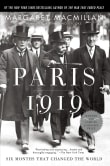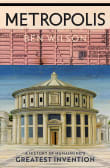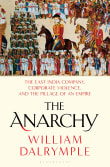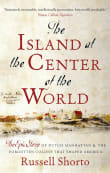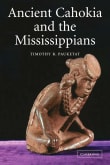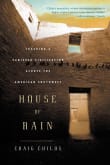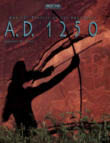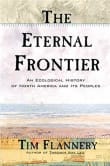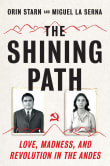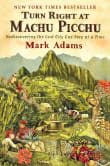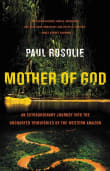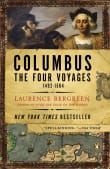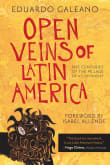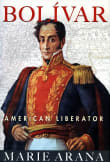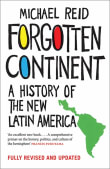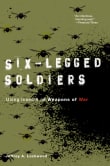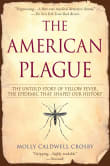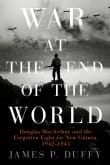1491
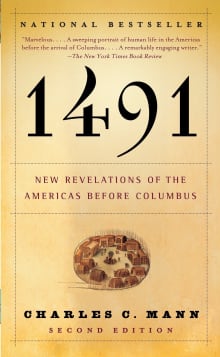
Book description
NATIONAL BESTSELLER • A groundbreaking work of science, history, and archaeology that radically alters our understanding of the Americas before the arrival of Columbus in 1492—from “a remarkably engaging writer” (The New York Times Book Review).
Contrary to what so many Americans learn in school, the pre-Columbian Indians were not…
Why read it?
9 authors picked 1491 as one of their favorite books. Why do they recommend it?

This book brought the shamefully neglected field of Indigenous studies to a general audience through a compelling and readable narrative. As someone passionate (and teaches and writes) about this topic, it makes my list for changing the landscapes of our collective understanding of Indigenous peoples and their proud histories, cultures, traditions, and contributions.
From Timothy's list on challenge what you thought you knew about history.

This book opened a whole new world for me with its painstaking and voluminous depiction of life in the Western Hemisphere before European colonization.
Drawing on many archaeological sources and combining them with rich description from personal visits, the book created a vivid picture of how varied and complex the social life and culture was in North and South America, and how much (surprisingly) scientists know about the civilizations that came before us.
I couldn’t help imagining what the world would have been like if the Europeans had approached the New World as one society greeting another, rather than as…

I’m grateful to see how the narrative about Columbus, the Pilgrims, and European colonialism has changed since I was in elementary school, but for someone who was taught that Columbus was a kind of hero-genius, this book was a revelation.
One of its most powerful lessons is how efficient pre-capitalist systems of commerce were; the Incan Empire, which was far bigger than the Holy Roman Empire or the Ottoman Empire, never experienced famine because they prioritized life and well-being over gold and profit. This book also shows how flora in the Americas exploded during the sixteenth century, leading to the…
From William's list on invasive species and their impact on human history.

I absolutely love learning about the Revolutionary era and the 18th-century at large. And John Adams no doubt played a role in shaping this passion.
In this Pulitzer Prize-winning biography, McCullough places readers smack dab in the middle of 18th and 19th-century America. Using wonderful storytelling, McCullough follows the life of one of the era’s most accomplished people, John Adams, on his path from proud British subject to the ultimate revolutionary and eventual president of the United States.
Using John Adams as his subject, McCullough captures the spirit of the American Revolution and the struggles of the early republic.
From Jordan's list on that will hook you on history.

Charles Mann's book was an eye-opener to many people, pointing out that much of the history we learned as children in school was wrong. The realization that the pre-Columbian cultures in the Americas were rich, vibrant, and advanced has taken time to be accepted broadly, but Mann's book pushes that understanding to a new level. The book combines history with science and archaeology to present a full picture of the American history we never learned.
From Robert's list on the history we never learned.

If you want to start your study of South America and the Americas from the beginning (pre-European contact), this book does a great job of painting the big picture while at the same time puncturing the numerous myths that have been built up since 1491 about what the Americas were like prior to Columbus’ arrival. The next best thing to taking a time machine back there and flying over the area yourself.
From Kim's list on South American history.

Peru and South America had over 5,000 years of civilizations before the continent was “discovered” by Europeans. A great overview of that enormous sweep of history is Man’s 1491, which paints a picture of just how fascinating so many of those pre-Hispanic cultures were. It’s the next best thing to taking a trip in a time machine and flying over the area yourself.
From Kim's list on the amazing country of Peru.

1491 changed my life and my understanding of the early Americas, and it’s the touchstone text for anyone fascinated by the richness and complexity of the continent prior to the arrival of European invaders, exploiters, and settlers. It spends due time on the Inca, Aztec, and Maya civilizations, but where the book really shone for me was in its description of the perhaps less widely known peoples of North America, and especially the magnificent Mississippian culture of Cahokia, a mound-building city of 20,000 people located where St. Louis is now, and the other cities and towns along the Mississippi and…
From Alan's list on ancient North America.

The pre-Columbian world was far more varied and richer in terms of environment and culture, than people realize. Deploying new discoveries and research in archaeology, ecology, and history, Mann brings this lost world alive and shows how by the time many European explorers and travellers reported on what they saw in the “New World,” it had already undergone a staggering and destructive transformation, primarily at the hands of infectious disease. Whole civilizations had collapsed, with population declines of up to 80 percent in some regions. Economies were disrupted or destroyed, cities, towns, and farms abandoned, the remnants to be discovered…
From Stephen's list on big ideas in world history.
Want books like 1491?
Our community of 12,000+ authors has personally recommended 100 books like 1491.
